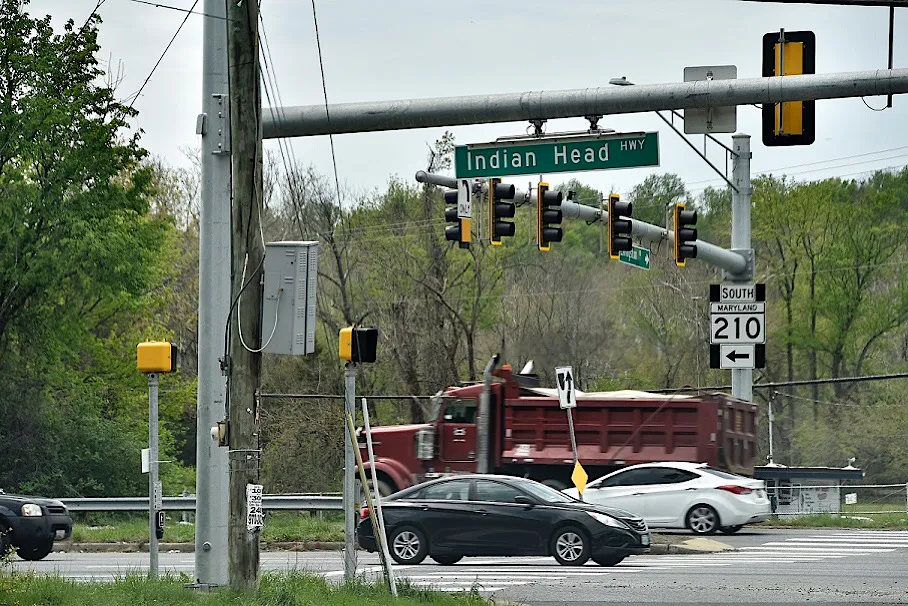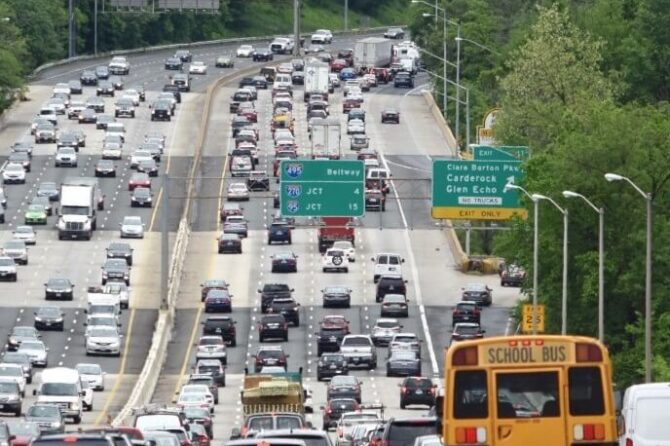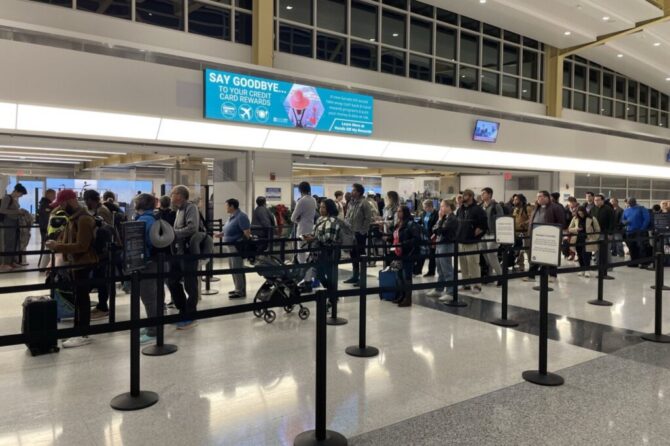The name of Indian Head Highway isn’t going anywhere, after all.
State legislation signed into law last month would permanently change the nearly 21-mile stretch of road in southern Prince George’s County to Piscataway Highway, in honor of the Piscataway Native American tribe — or so supporting legislators thought.
But it turns out that legislation merely “designates” the stretch along Route 210 as Piscataway Highway, leaving the original, offending name in place.
The Maryland Department of Transportation’s State Highway Administration (MDOT SHA) has an answer to some of the confusion.
MDOT says a designation “may be a plaque or sign installed in a rest area, scenic overlook, visitor center or other location off the mainline portion of the highway where parking is provided and the marker is not conspicuous to motorists on the mainline.”
Instead, at least two signs displaying the new designation will be placed on the road that stretches from the D.C. border in Oxon Hill into neighboring Charles County by October.
That explanation didn’t sit well with Julie Taya Yates, matriarch of the Piscataway Indian Nation, who attended the bill-signing ceremony in Annapolis that featured the first time in state history two Black women signing bills into law.
“That was a historic day,” Yates said in an interview Thursday. “We walked out of there full of joy and gratitude looking forward to this new change. Today, I’m stunned. Something isn’t right.”
According to a March 11 letter from MDOT to Del. Kumar Barve (D-Montgomery County), chair of the House of Delegates’ Environment and Transportation Committee, renaming a highway or road “poses challenges and costs,” including having to replace signs along and beyond the immediate highway area, changing mailing addresses and upgrading emergency and other government mapping systems.
“For these reasons, the MDOT SHA recommends the dedication process for a roadway or facility, as it visibly honors the requested individual, group, or entity with the appropriate signage and avoids the concerns enumerated above,” MDOT representatives Heather Murphy and Pilar Helm wrote in the letter.
Yates said the road carries a historical aspect of Native Americans who died that included the removal of heads. She said ghosts of the ancestors “will rejoice when that name is gone.”
The highway is known as one of the most dangerous in Maryland because of a number of vehicles crashes and pedestrian fatalities.
Jesse James Swann Jr., chief of the Piscataway Conoy Tribe, worked with community leaders such as Del. Jay Walker, who isn’t seeking reelection this year, for at least seven years to change the highway’s “derogatory” name.
Swann, of Charles County, wrote a detailed email Thursday requesting that Gov. Larry Hogan and MDOT honor the intent of the resolution. If no resolution is met in a timely manner, he and other supporters will ask for a legal interpretation from the state attorney general.
“We understood designation as the act of selecting, identifying or naming, which we all understood as the renaming of the highway,” he said. “We plead with Governor Hogan to make the right step forward in honoring the people that protected the ancestors of all of the other Marylanders here today. Honor us: order the name change!”
This article was written by the Washington Informer, for more articles like this click here.
A sign for Indian Head Highway in Oxon Hill, Maryland, is shown here on April 21. (Robert R. Roberts/The Washington Informer)











